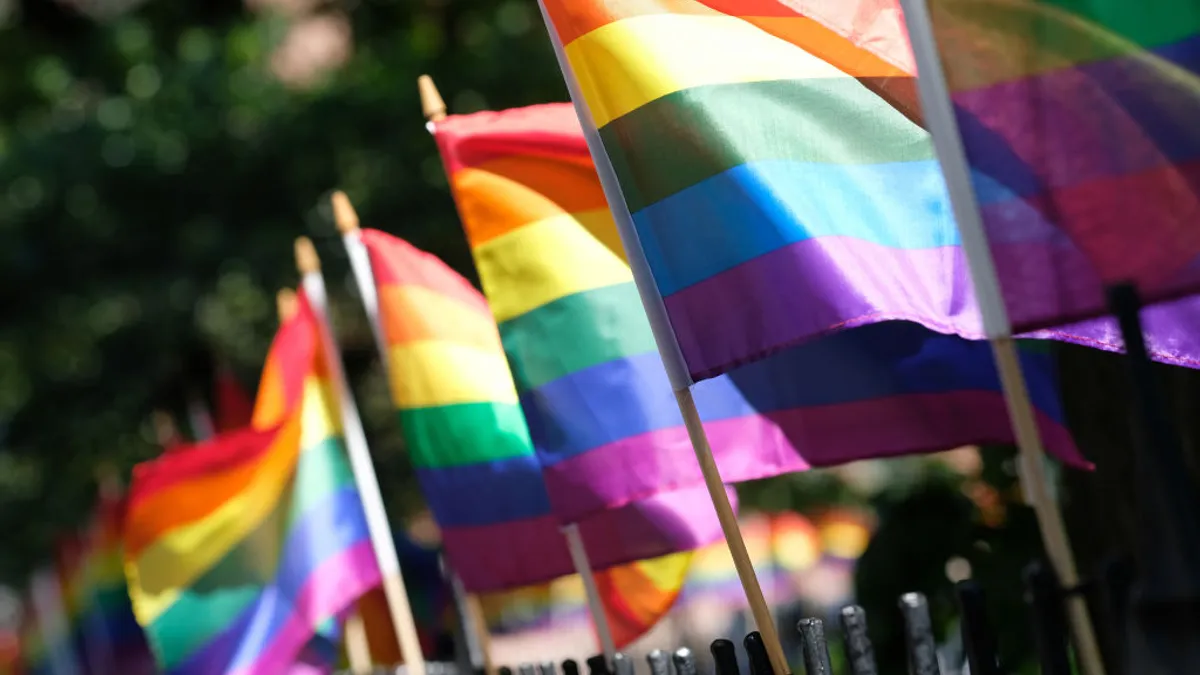Marking the anniversary of the U.S. Supreme Court's decision in Bostock v. Clayton County, Ga., members of the U.S. Equal Employment Opportunity Commission outlined the agency's goals for combating employment discrimination and harassment against LGBTQ people.
"The Bostock decision we celebrate today was a monumental victory for civil rights, but our work is not done," said EEOC Chair Charlotte Burrows during the June 15 opening session of the agency's 2021 virtual Examining Conflicts in Employment Laws conference. "I believe we should play a central role — and indeed, should lead — in fulfilling the promise of Bostock."
Burrows pointed to President Joe Biden's Jan. 20 Executive Order as being "key" to the implementation of the Bostock decision, in which the High Court held that Title VII of the 1964 Civil Rights Act prohibits employment discrimination on the basis of gender identity and sexual orientation.
The agency also is working to ensure charges of LGBTQ employment discrimination are "timely and fully investigated," Burrows said; EEOC has received more than 1,800 such charges per year going back to its 2018 fiscal year.
Additionally, January marked EEOC's first decision applying Bostock to a federal sector discrimination charge, Bart M. v. Dep't of the Interior, in which the agency found that the U.S. Department of Interior discriminated against a complainant on the basis of sexual orientation when it did not select him for certain supervisory positions. The decision was unanimously approved by the commission's five members, Burrows said.
Agency launches new webpage, documents
On the same day as Burrows' address, EEOC published several documents containing information about Title VII's workplace protections against discrimination, harassment, retaliation and other adverse employment actions.
The list of materials includes a webpage providing a broad overview of the topic as well as a fact sheet explaining the Bostock decision and its implications for a range of employment practices.
A pair of fact sheetings included in the materials detail a list of recent EEOC litigation regarding Title VII's LGBTQ protections and federal sector cases dealing with sexual orientation and gender identity discrimination, respectively. The former document includes litigation resolved as recently as December 2020.
The most recent of those cases, EEOC v. Amma Investment Group, LLC, and Maryland Health Management, LLC d/b/a Nature's Medicine, involved a lawsuit by the agency on behalf of employees at a retail distributor of cannabis products, who alleged a general manager subjected them to a sexually hostile work environment. The employer paid $175,000 to settle the suit.
Panelists look ahead to post-Bostock developments
While Bostock did provide clarity about employment protections, it left some questions unanswered — meaning employers and employee advocates both have some work to do moving forward, Molly Powell, administrative judge at the EEOC, said during a panel at the EXCEL conference.
For example, the decision did not address policies governing the use of bathrooms or other shared-sex facilities. However, the EEOC has addressed this issue in a 2015 federal sector case, Lusardi v. Department of the Army, in which it said that prohibiting an employee from using a restroom that aligns with their gender identity is discrimination on the basis of sex, Powell said.
"Given the clear language of Bostock with regard to how discrimination against trans employees is discrimination on the basis of sex, while this case didn't address bathrooms, it's hard to see how an employer could legally prohibit a transgender person from using the bathroom or locker room that aligns with their gender identity," she added. "I would encourage you all to check out Lusardi, because it really lays out very clearly the EEOC's perspective on the issue of trans folks in restrooms in the workplace."
Similarly, while Bostock did not address religious exemptions, Title VII does contain a ministerial exemption that exempts some employees of religious employers from certain nondiscrimination protections. The decision also did not address the Religious Freedom Restoration Act. "These will certainly be issues that are being currently litigated or will be soon in the future," Powell said.
There's also the issue of the Equality Act, a proposal before the U.S. Congress that has passed the House, but not the Senate. If passed, the bill would provide coverage for LGBTQ equality "in many areas of life," said Heather Nodler, panelist and fair housing trial attorney at the U.S. Department of Housing and Urban Development. "It would ensure that LGBTQ+ individuals did not have to wait for courts to affirm the interpretation of other statutes under Bostock in future rulings," Nodler added.
In the meantime, one case making its way through the 8th U.S. Circuit Court of Appeals could have an impact on the application of Bostock on other federal statutes. The case, The School of the Ozarks, Inc. v. Biden, deals with the Biden administration's implementation of the Bostock decision on the Fair Housing Act. A religiously-affiliated college sued the administration, but a district court denied the college's motion for a temporary restraining order and preliminary injunction. The college has appealed to the 8th Circuit.
"That's one to follow for sure," Nodler said.





















